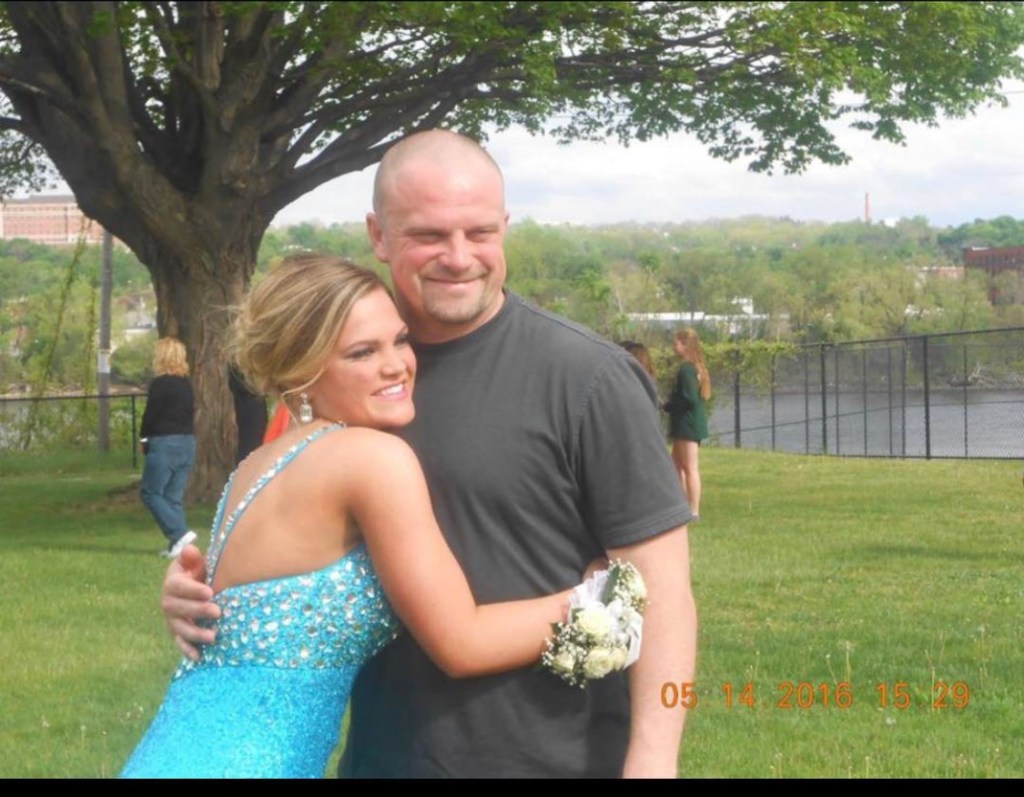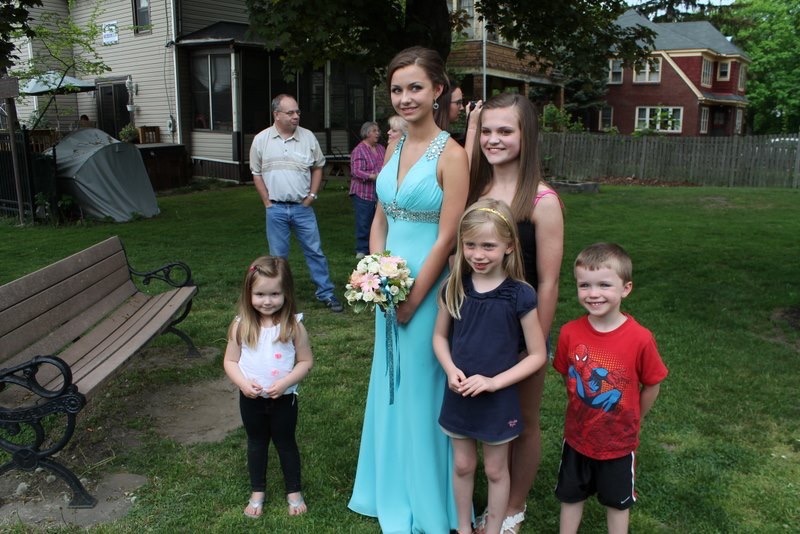Personal Introduction

My name is Rylie VanBramer, I am a junior psychology major with two minors, one in human resource development and one in education. I have danced competitively since I was three years old so I was excited to continue my passion on the Siena Dance Team for the past three years. With a big transition from high school to college I was happy to keep one thing constant in my life which has been dancing. I currently have three jobs to get through college, I work at SEFCU Mortgage Services, Ambiance Salon and Day Spa, and I babysit. In my free time I enjoy watching my favorite TV shows such as Riverdale, One Tree Hill, and Shameless. I also enjoy advocating and raising money for The Sarcoma Foundation Of America and Cancer Research. After Siena, I plan on attending graduate school and becoming a child psychologist, working with children has always been an interest of mine. With about 35% of children seeing psychologists regularly it is a growing and popular demand for work.
Hometown
I am a local resident residing in Brunswick, NY. The population of Brunswick tends to be predominantly white residents. Therefore, I would be considered part of the dominant culture in that aspect. Brunswick is about twenty minutes from Siena College. Although, I am local I still live on campus for better connections and a better college experience. As Becker describes, being apart of the dominant groups doesn’t always have to do with education, money, and social status but, social capital such as interactions with human capital among peers and professors that can lead to higher human capital in the future of the workforce. I attended Heatly High School, which is a very small public school with about two hundred students from grades kindergarten to twelfth grade. As this school doesn’t have the best reputation in the area the one on one teacher student availability was beneficial. Also, the smallness of the school opened me up to more oportunites such s traveling to Disney world for our senior trip, and taking all college courses our senior year through Hudson Valley Community College and University At Albany. Although, college wasn’t for everyone each student graduated with around thirty eight college credits equalling out to about one year of college and almost all counted as general education classes. Around 13%of students graduate ready for college and higher education along with college credits. Heatly High School has a 94% graduation rate although, I am the only one in my graduating class who attended college. I graduated Salutatorian of my class which was a huge success for me as I struggled with a very difficult time of losing my father to cancer my senior year.

Family
I have a very large family with eight aunts and uncles and over twenty cousins. Despite having a very large family I am an only child. My mother works at SEFCU Mortgage Services as well and my father worked as an insurance adjuster at Liberty Mutual Insurance Company. My parents were high school sweethearts and very young when I was born. Although, Brunswick has 83% of their households containing husband and wife, my parents didn’t stay together but remained dedicated to making sure I had the best life possible. I have always been very close to my parents and grandparents and appreciate everything they have done for me. Especially, the support that they have all shown me such as in academics, dance, and my goals. In my family I will be first generation college graduate which will be a huge success for both me and my family. My parents have always pushed me to overachieve and that is what I plan to do. As stated previously when I was seventeen years old I lost my father to Sarcoma Cancer, achieving success and becoming the best version of myself is my goal and I dedicate my success to him because of his push for me to do so.


Power, Privilege, and Inequality
Education
Although I have not been in a standing in a workforce to demonstrate power yet, my educational activities and experience has shaped the power and privilege I have experienced. Through peers and teachers the expectations of social interactions and socially dominant features are enforced. Being a public school there was a variety of students but many students that had similarities. Additionally, being a small school if there was characteristics that went against the social norms it was more difficult to fit into a social norm somewhere. Therefore, education and the school environment strongly influenced the social norms of the society. To be discussed later in my autobiography education has presented the social stigma around me being an only child. Additionally, education has given me a more dominant accessibility to engage in higher education. Also, being a local resident and going to a successful school such as Siena it represents power in my community to known for being to a highly successful and known school.
Family
My family has always been very religious and believed in traditional practices. Therefore, my family has given me the beliefs of how life should play out. Such as, school comes first, then marriage, and then children. Since, this was instilled to me from a young age it has been the way that I view life for a multitude of reasons. To further live in alliance to my families expectations and to follow the social norms of my family and social values. I have had cousins in my family who have gotten married young and had a baby young before marriage and there was a social stigma placed around them for disrupting the socially dominant thought of life expectations.
Deviant Behavior
Becker suggests that the definition of deviance from a scientific standpoint is “Statistically defining as deviant anything that varies too widely from the average.”(Becker, pg.4) Becker also points out in the first chapter that each group judges deviance on different levels and beliefs. Deviant behaviors range from breaking rules to doing nothing wrong at all and just being part of a subculture that is not dominant in society. In essence deviance is “the failure to obey group rules” (Becker, pg. 8) Considering that areas of the world range in variability and social dominance is is no surprise that there is such a large range of deviant behavior as all behavior can be considered deviant to certain groups. Deviance is more than just a behavior but how certain groups react to the behavior being presented. Becker suggests that deviance is simply created by society and doesn’t mean that the agreed upon rules are understood.
My Personal Relationship to Deviant Behaviors
Being An Only Child

Often times when answering a survey or questions it is perceived that the participant has siblings by often asking questions of standing in the family. Although, it wasn’t my decision as if I was an only child or not there is still a stigma surrounding the status of being an only child. For instance, only children have the reputation of being spoiled. Although, that feature has nothing to do with the status of sibling relations but the way in which one was raised. The thought is that when someone is an only child the parents have more time and money to spend on the child and the child doesn’t have any wants or idea what it is liked to be told no. Therefore, there is a stigma around only children being rude and spoiled. Different institutions that can place this stigma around the subculture of being an only child can be experienced from multiple different aspects of one life. Such as, in academic settings, extra curricular activities, and interactions with social structures. I was always raised to be appreciative of what I received and be aware that I can’t always be told yes. With only 20% of families being only child households in America it is the subculture to not have siblings. Most families have an average of 2.87 children meaning that families often range from two to three children so it is no shock that only children can be considered deviant in terms of responsibility, respect, and appreciation because of the stigma placed around only child families. I don’t believe that the personality of an individual is based on the amount of siblings one has but how one was raised and the values one was taught throughout their life. Due to the social stigma around the subculture of being an only child I am identified with the subculture behaviors that are associated with being an only child although, I do not engage in them.
Future Of Deviant Career in Child Psychology
As discussed previously I intend to finish my academic career as a child psychologist. A child psychologist interacts with children on a variety of reasons such as, learning disabilities, mental illnesses, trauma, and many more. The idea of being a child psychologist to help children in need is an example of a deviant career because many mental illnesses are stigmatized and unable to be accepted by psychology. Many people believe that mental illnesses are not real and people intend to act deviant. As Becker suggests, people who engage in deviant behaviors often don’t realize that they are going against the social norms because they are not aware that other people may act different. Becoming a child psychologist requires to one that there are many types of people in the world. In a standpoint of the patient a psychologist can be a deviant career because of the realization that there are people that go against the social norms but it is important to not make these children conform to societies expectations but to help them live and learn within society. Being a psychologist can also be a deviant career because of the stigma placed around mental illnesses. Often times, people don’t want to see a psychologist because there is a social stigma around getting help for mental reasons. For instance, only 41% of people who experience mental health problems seek professional help. Additionally, there is a stigma around having aspiration to be a psychologist because of the job availability due to the fact that there is a stigma around mental illness. Most people pursue a career in fields such as business, medicine, and law to secure a job and have potential for good income. Jobs such as psychologists in society have a reputation for not receiving as much income or a good job outlook. Although, mental illness is becoming more accepted by society it is still not a dominant career to pursue in society.
In Conclusion
I have learned that deviant behaviors can be very broad. At the beginning of this assignment I was struggling to find deviant behaviors that I engage in. I have learned that it doesn’t have to be a deviant behavior intentionally engaging in but a behavior or status that is against the norms of society. Being an only child isn’t that common in todays society and it has given me a disadvantage in terms of social interaction because of the stigma placed around only children. Additionally, the future of my success and my career could be stigmatized based on the social stigma placed around mental illness.
References
Becker, H. S. (1997). Outsiders. London: Free Press.
Brunswick NY Demographics data. (n.d.). Retrieved from https://www.towncharts.com/New-York/Demographics/Brunswick-town-NY-Demographics-data.html
Kelleher, S. (2015, September 26). The only child: Perceptions don’t have much to do with reality. Retrieved from https://www.seattletimes.com/pacific-nw-magazine/who-needs-brothers-or-sisters-onlies-are-no-more-likely-to-be-selfish-spoiled-or-lonely-than-kids-with-siblings/
Marcus, M. B. (2015, October 12). 1 in 3 children with mental health needs only see a pediatrician. Retrieved from https://www.cbsnews.com/news/1-in-3-children-with-mental-health-needs-only-see-a-pediatrician/
Mongeau, L., Mongeau, L., Serrano, A., Serrano, A., Marcus, J., Marcus, J., … Mathewson, T. G. (2019, April 16). Most colleges enroll many students who aren’t prepared for higher education. Retrieved from https://hechingerreport.org/colleges-enroll-students-arent-prepared-higher-education/
5 Surprising Mental Health Statistics. (2019, February 6). Retrieved from https://www.mentalhealthfirstaid.org/2019/02/5-surprising-mental-health-statistics/